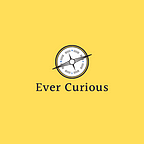There is a wrong way to reflect. Avoid the dangers of introspection.
Introspection: It’s important but dangerous.
It can damage more than it can help.
Developing self-awareness is not a goal; it is the purpose of your existence — Gustavo Razzetti
There is no doubt as to the importance of self-reflection: such reflection underpins behaviour change. Certainly, as Aristotle once said, “knowing yourself is the beginning of all wisdom.” However, self-reflection does not necessarily bring self-knowledge and brings along with it a whole host of dangers.
Covid-19 sent the entire world into house arrest, leaving many with nothing but their own thoughts, and a lot of time. It was because of Covid that I stopped and reflected properly, asked myself exactly what I wanted to achieve. However, introspection can lead us down spiralling rabbit holes and into the enigma that is our mind. Reflecting is valuable if done correctly. It is dangerous if not.
The misconception
Contrary to popular belief, psychologist Tasha Eurich found that:
- There is no relationship between introspection and self-knowledge.
- Introspection is a highly inaccurate source of self-knowledge.
- More time spent in reflection can actually reduce your self-knowledge.
The world of self-development focuses on mastery of the self, through self-knowledge and ruthless self-examination. If the above is true, what then is a substitute for self-examination? Surely self-analysis is needed?
Indeed, it still is, but not in the way you think.
Asking why can cloud and confuse our self-perceptions — Tasha Eurich
The dangers of introspection
Our minds are fragile. Too much introspection allows self-doubt and self-pity to take over. We get stuck in the same movie, replaying it again and again, hoping that there will be a different ending. We get stuck in the sand, trying to find the truth. Well, the truth is: there is no truth. No answer will ever be good enough.
- Asking why puts you in a victim mentality.
- Asking why means we fixate on problems instead of addressing how we can solve them: when we turn inward, we tend to choose the most plausible or easiest option. We overestimate ourselves.
- We have cognitive biases which we cannot perceive or correct. We are unable to infiltrate our unconscious biases which work invisibly.
- There is no end to introspection.
- Thinking about yourself is not correlated with knowing yourself.
Despite our efforts, much of our mind is inaccessible and thus introspection can be liked to our self-diagnoses of our physical ailments: inherently unreliable.
A study on self-reflection from the University of Sydney found that the process of introspection and the gaining of insights (knowledge) is logically independent.
What does this mean?
We can spend endless amounts of time in self-reflection but emerge with no more self-insight than when we started — Tasha Eurich
Change is the only constant in life. So, when we ask why we assume that things progress linearly, that there is a cause and an effect, we skew our version of events. The world is chaotic, yet we try to simplify it. We get stuck in rabbit holes trying to figure out our attitudes and beliefs and reasons for why relationships failed or why we felt terrible this morning. Why questions skew reality. In investigating every little detail we struggle to see what is actually going on. We lose clarity.
The correct way to self-reflect
The correct way to introspect is to ask ‘What?’ questions and to limit time in introspection.
- What is going on?
- What am I feeling?
- What is the chatter inside my head?
- What can I do to respond better?
- What can we do right now that would help this situation?
‘What’ questions result in action. Why leads us spiralling and spiralling down into the enigma that is our consciousness.
Three reasons to ask ‘What’ questions
- The answers to ‘what’ questions rely on logic, not feeling.
- ‘What’ questions help us name our emotions and, in the process, stops the activation of the amygdala fight or flight response.
- Such questions help us see our potential.
Key Takeaways
To learn about yourself, you must look outside of yourself. You must learn to get out of your head and transform your ideas into reality. Here are the key things to take away from this article:
- The more time you spend in introspective mode, the less self-aware you become. Look outside of yourself.
- Stop asking why. There will never be a ‘perfect’ explanation for events in your life. It only leads to more questions.
- Introspection can be extremely ineffective and causes more damage.
A person who thinks all the time has nothing to think about except thoughts. So, he loses touch with reality and lives in a world of illusions — Alan Watts
